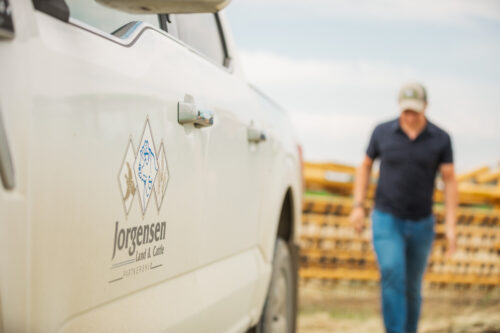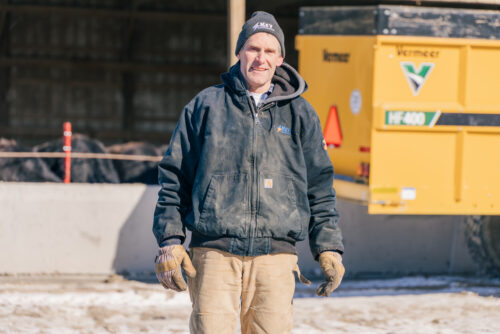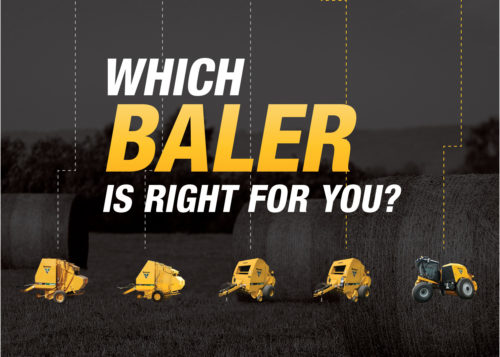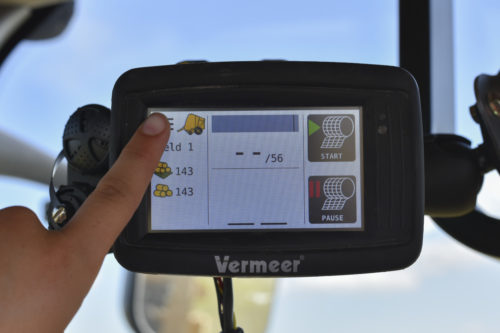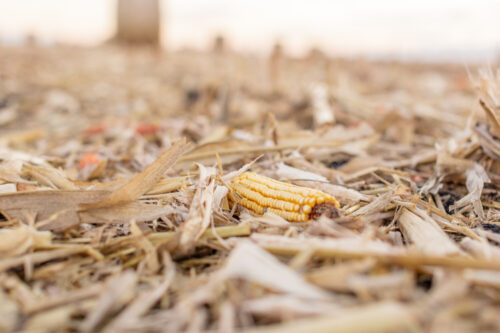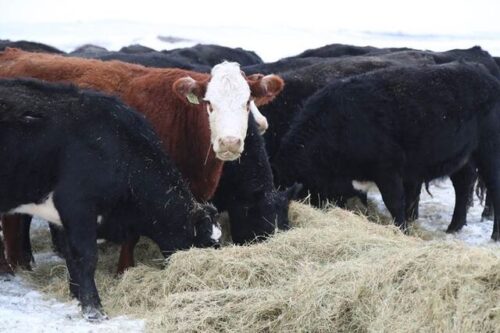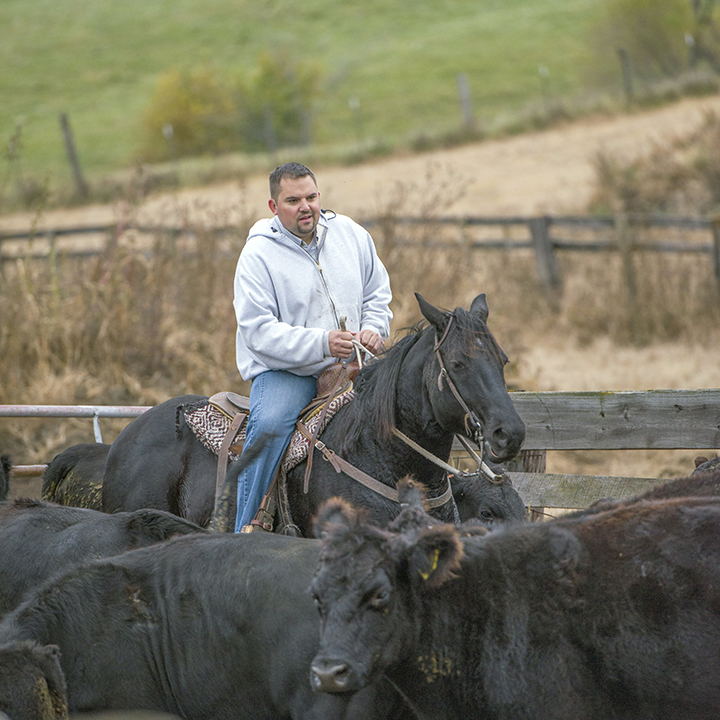
Farm experience drives engineer to solve problems
May 2019
Labor, technology critical to rural America’s productive future.
Ty Hartwick grew up on a family farm in southeast Iowa, became an engineer and entered an industry outside of agriculture. Now, the engineering manager in Vermeer Forage Solutions is working in the business that was the backbone of his upbringing.
“I grew up watching my folks survive the farm crisis, and I grew up on a farm where my family was proud of the lifestyle we were able to live and, at the same time, treated it like the business it was,” Hartwick said. “On a farm, you’re running a business that’s more complicated than the average business person’s, but you’re also protecting part of the fabric of our country and who we are as a nation.”
Diverse background
Prior to joining the Forage Solutions team at Vermeer, this grandson of a farmer and Vermeer dealer worked on the specialty excavation side of the company. After a decade designing machine controls and programming software around the world, he returned to his farm roots.
“My mechanical background is based on learning the hard way on the farm. I’m an engineer, but I’m very much an in-the-shop engineer. The fact I can pass ‘Farm Kid 101’ is important to our customers,” Hartwick said. “Many of the farmers I work with are absolutely engineers on a daily basis.”
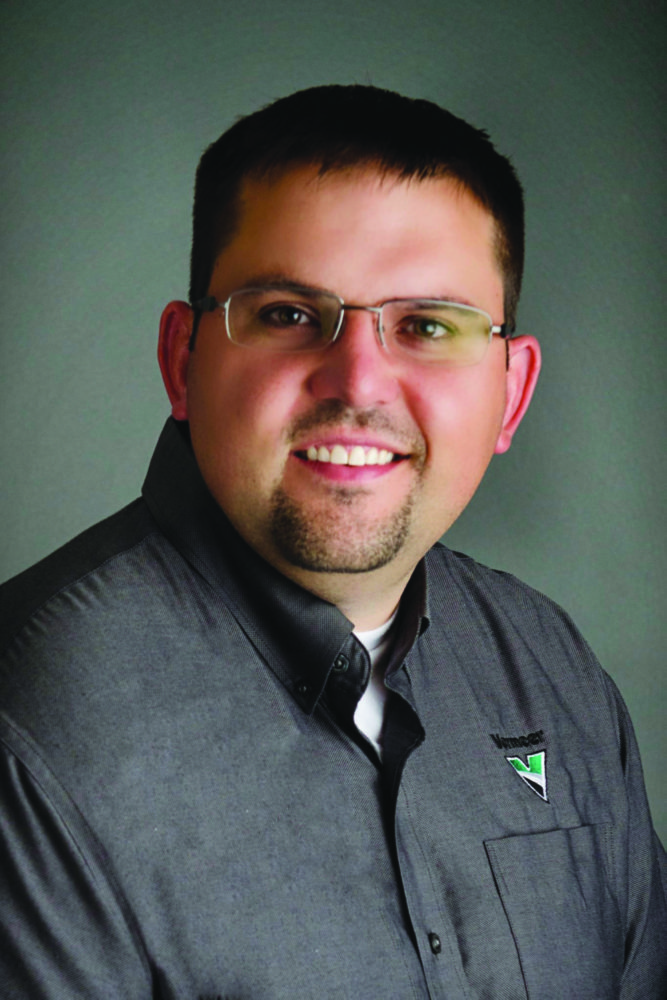
Working directly with farmers to troubleshoot issues in the field is Hartwick’s favorite part of his job. Collaborating to reach a solution is a big part of what drives him.
“There’s nothing better you can do as an engineer than listen to what their problems are and what matters to them most, then talk about what you can do to help,” Hartwick said. “A huge percentage of engineering is creating a solution when you see someone with a need.”
Hartwick credits his farm upbringing with much of his success at Vermeer. That kind of experience is becoming something of an endangered species in farm country; something he sees as a growing rural challenge.
“Part of the solution is giving kids the right education, whether on planting the land, turning wrenches in a dealership or on a farm or working in a manufacturing plant. There will have to be ways we can take care of the next generation to fill those roles,” Hartwick said. “We’re certainly trying to innovate with our ability to automate certain operations. At the same time, we want to enhance the old classic machines. These are things that can tackle the labor shortage in rural America.”
The Vermeer ZR5-1200 self-propelled baler is an example of how innovation can make farmers more efficient and step toward solving the common problem of labor in parts of farm country.
“The ZR5-1200 has the ability to reduce the amount of labor needed by letting one person do the work.” Hartwick said. “They can bale their hay and have the time and energy to come back and do whatever other jobs there are to do. People will find the tools to get the job done through automation and innovation.”

